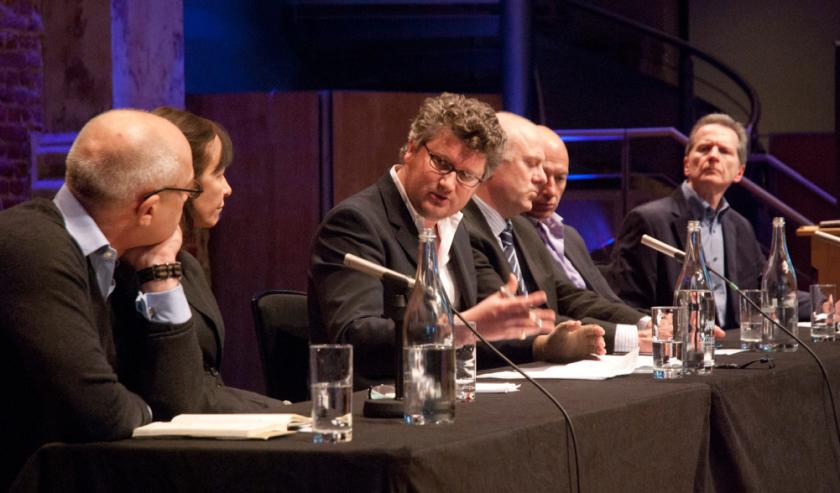The annual conference of the Incorporated Society of Musicians may not sound like an event liable to stop traffic, but this year's gathering at LSO St Luke's (13 and 14 April) offered such treats as a conversation with Sir Colin Davis, a concert celebrating 100 years of jazz composer/arranger Gil Evans by the Guildhall Jazz Band, and a masterclass from soprano Amanda Roocroft.
And on Thursday afternoon, a panel of broadcasters and programme-makers gathered under the chairmanship of Radio 3 broadcaster and journalist Tom Service to kick around the thorny question of The Future of Classical Music Broadcasting. Sky Arts director James Hunt reminded the audience that his channels have recently trebled their budget and had pioneered such phenomena as the first live opera broadcast in 3D (ENO's production of Donizetti's Lucrezia Borgia) and last month served up a live broadcast of Raymond Gubbay's Aida production from the Albert Hall.
However, Phil Grabsky, of Seventh Art productions and maker of the In Search Of... series of music films (Mozart, Beethoven, Chopin etc) felt that it was getting ever tougher for indie programme-makers to put serious music programmes on TV (and by "serious", Grabsky didn't mean Charles Hazlewood's BBC series on Beethoven, which he considered superficial and full of inaccuracies).
Jan Younghusband, the BBC's commissioning editor of Music & Events, insisted that balance was the key, which was why we'd had not only Tony Pappano's Opera Italia and Mark Elder playing symphonies on TV, but also the pro-am conducting competition Maestro and the forthcoming Maestro at the Opera. She argued that BBC TV has been increasing its classical music coverage, not least by airing more Proms, even if members of the audience didn't seem to think so and objected to what they considered "dumbing down". Younghusband added that the BBC was careful not to lavish public money on marketing its programmes, which may be why viewers had missed them.
Meanwhile, Radio 3 programme editor Edward Blakeman grappled with the insoluble issue of whether it's possible to make unadulterated classical appeal to a broader audience, though he noted wryly that where once Radio 3 used to be accused of "elitism", it was now being seen as addressing a "significant minority" audience. A question not discussed was whether the BBC should be thinking about wider audiences and mass markets at all, since, as you may recall, there used to be a theory that the licence fee insulated the Corporation against vulgar ratings-chasing.
The elephant absent from the room was Classic FM, who had been invited to send someone along but hadn't managed to. Blakeman agreed that they should indeed have been part of the discussion, and hailed them for "doing what they do very well."
As for the future, nobody knew what would happen, though Sky Arts are keen on doing more live events, and ever-cleverer TV technology will doubtless offer better pictures, more 3D-ness, and greater multi-viewpoint interactivity. An aspiring composer in the audience wanted to know if there might ever be a "blank space" in the broadcasting firmament where new ideas and untried works could get a hearing. He didn't really get an answer.















Add comment